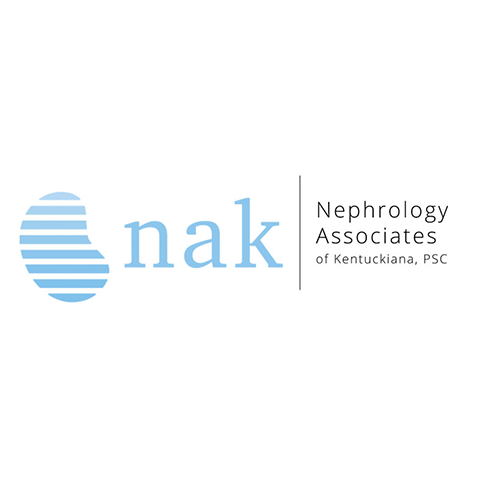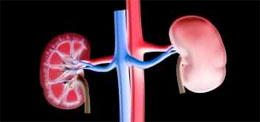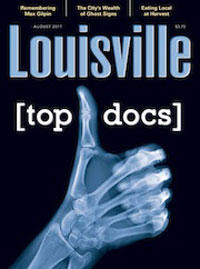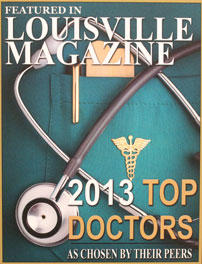Professional help for those with kidney disease. Give us a call today to schedule an appointment!
From the Providers and Team at NAK have a Safe and Happy 4th!🎉
We would like to Congratulate Dr. Hisham Elsherbiny on his graduation from Mayo Nephrology program. Dr. Elsherbiny will be joining our team in July! 🎉
We are looking forward to re-opening and caring for you all! Please see message below! Stay Well Stay Safe
From Our Families here at NAK to you and yours - have a Safe and Blessed Thanksgiving!
I wanted to share some information about the COVID-19 vaccination in the transplant population. The American Society of Transplantation has recommended that all solid organ transplant recipients receive the vaccine for protection against COVID-19. There are some caveats that should be considered before receiving the vaccine. First, the study population did not include immune compromised hosts (or patients on anti-rejection medications). It is not known if antibodies against COVID-19 are created from the vaccine series and how long protection will last in the transplant population. Second, it is unknown how soon to receive the vaccination after a kidney transplant. These questions should be answered soon when Johns-Hopkins reports their study on transplant patients. If you are interested in participating, please go to the website https://transplantvaccine.org for further information.
Here is a copy of the AST letter and the COVID-19 Vaccine FAQ sheet
December 15, 2020
With the distribution of COVID vaccines beginning, we believe transplant recipients should be encouraged to get the vaccine, consistent with the recommendations of the American Society of Transplantation, the American Society of Transplant Surgeons and the United Network of Organ Sharing. The risk of a COVID infection in the transplant recipient population is significant with Cravedi et al reporting a 32% mortality rate for hospitalized transplant recipients in a recently published 12 center study.
We also want to encourage transplant centers to support the enrollment of transplant recipients, receiving the vaccine, in the multi-center research study organized by the Hopkins research team to better understand the impact of the vaccine on transplant recipients. The study web page, which includes patient enrollment, is linked here. The more recipients that we are able to enroll this study, the more information we will be able to quickly provide to the transplant community.
Also linked here is a list of frequently asked questions about the COVID vaccine for transplant patients along with additional information on the Hopkins study.
Sincerely,
Dr. David Serur
NKR Medical Director, Professor, Dept of Internal Medicine, Hackensack School of Medicine
Dr. Matthew Cooper
NKR Surgical Director & Director of Kidney Transplant, MedStar Georgetown Transplant Institute. Professor of Surgery, Georgetown School of Medicine.
Dr. Robert Montgomery
Chair, Department of Surgery and Director, NYU Langone Transplant Institute Professor of Surgery.
Dr. Didier Mandelbrot
Medical Director of Kidney and Pancreas Transplantation University of Madison, WI
Dr. Dorry Segev
Associate Vice Chair for Research and Professor of Surgery, Johns Hopkins University.
Dr. Christina Klein,
Medical Director, Kidney and Pancreas Transplant, Piedmont Transplant Institute
Dr. Raja Kandaswamy
Director of Kidney and Pancreas Transplantation. Professor, Department of Surgery, University of Minnesota.
Dr. Sandip Kapur
Chief of Transplantation, New York Presbyterian Hospital, Professor of Surgery Cornell University
Dr. Mike Cecka,
NKR Lab Director & Professor Emeritus at UCLA Immunogenetics Center. Director Hawaii Cellular Therapy and Transplant Laboratory.
Dr. Mikel Prieto,
Surgical Director of the Kidney & Pancreas Transplant Program, Mayo Clinic in Rochester, Minnesota
Dr. Jeff Veale,
Director Donor Exchange Program & Surgeon UCLA, Professor, David Geffen School of Medicine at UCLA
Dr. Peter Kennealey,
Surgical Director of Kidney and Pancreas Transplantation, Associate Professor of Surgery, University of Colorado
Dr. Christian Kuhr
Director of Kidney/Pancreas Transplantation, Virginia Mason Medical Center
Page 1|1
COVID Vaccine for Transplant Recipients
Frequently Asked Questions
What is the status of COVID vaccines?
The U.S. Food and Drug Administration (FDA) has approved use of a COVID vaccine made by Pfizer. Healthcare organizations in many states will get their first doses in December 2020. Because there is a limited supply of vaccine, front line health care workers and those at the greatest risk of death from COVID will receive the vaccine first. The FDA is also considering a request to authorize use of another COVID vaccine made by Moderna. The same distribution process will also be in place with the Moderna vaccine. Large scale vaccine delivery is expected to begin in February - March of 2021.
As a transplant recipient, should I get vaccinated for COVID?
Dr. Anthony Fauci, Director of the National Institute of Allergy and Infectious Diseases suggests that all immunocompromised people, such as transplant recipients, get the COVID vaccine. The American Society of Transplantation (AST) additionally recommends that members of the transplant recipients’ household get vaccinated as well to help protect transplant recipients. The AST also recommends that patients scheduled for a transplant get vaccinated at least 2 weeks before transplantation or 1 to 6 months post-transplant. Transplant recipients that have concerns about getting the vaccine are encouraged to speak to their health care provider about the vaccine.
Are there any studies focusing on transplant recipients who get the vaccine?
The team at Johns Hopkins has initiated a study focusing on transplant recipients who get the vaccine. All solid organ transplant recipients who intend to get the COVID vaccine are invited to enroll in this national observational study looking at antibody development and durability after vaccination. Results from this study will provide important guidance to transplant recipients, many of whom are currently reluctant to get the vaccine given its novelty. Participation in the study involves at-home, painless capillary blood sampling before and after vaccination and the completion of several short surveys (vaccine side effects, impact of allergies). To enroll, visit: https://transplantvaccine.org/. Initial information generated from this study should be available in February-March of 2021 followed by more extensive information planned for publication throughout 2021.
Page 1|5
What are potential side effects of the vaccine?
The Pfizer and Moderna vaccines work by helping your body to make antibodies. Antibodies are proteins that help fight infections from viruses, bacteria and other germs. Mild symptoms are common – a normal response when making antibodies. It is not a sign of infection. In Pfizer’s ongoing clinical trials involving 44,000 volunteers, some of the common side effects were:
• pain at the place where you got your shot
• feeling tired
• headache
• muscle pain
• chills
• joint pain
• mild fever
These side effects were generally mild and went away after a day or two. Side effects seem to be greater after the second dose. Experts recommend being prepared to take time off after receiving the second dose. If symptoms are unpleasant, ask your doctor what you can take for pain. If symptoms persist longer than a few days or if you are concerned about potential side effects, discuss with your doctor.
As with any vaccine, there is a low chance of allergic reaction. If you have a history of allergic reaction to other vaccines, please discuss with your doctor before you get the vaccine.
How many COVID vaccines are under development?
Multiple COVID vaccines are still under development. In the United States, Operation Warp Speed (OWS) is supporting 6 potential vaccines. Many vaccines are also undergoing development outside of OWS. Those in Phase 3 are in large clinical trials and getting close to being ready for emergency authorization use.
Vaccine Maker Clinical Trial Phase
Moderna Phase 3
Janssen Phase 3
Pfizer Phase 2/3
AstraZeneca Phase 2/3
Sanofi Pasteur GSK Phase 1/2
Novavax Phase 1
Page 2|5
How do the new vaccines work to stop COVID?
Like any other vaccine, the new COVID vaccines work by boosting your body’s immune response, its ability to spot and kill foreign invaders by making antibodies. The Pfizer and Moderna vaccines both use genetic material (mRNA) from the COVID virus to help your body spot viral cells. The COVID vaccine helps your body to make antibodies that can bind to parts of cells called spike proteins on the outside of the virus. When the antibodies bind, they stop the virus from entering your cells.
Since spike proteins do not belong in the human body, your immune system will find and kill them and the COVID virus. This stops the virus from reproducing and making you sick. Then, if you are exposed to COVID later, your immune system will be able to spot the virus and keep you protected.
Are the new vaccines safe?
Rigorous standards for safety were set by the FDA in June 2020. All vaccines must meet these safety and effectiveness standards. While there are currently no licensed mRNA vaccines in the United States, they have been studied for decades for use with cancer and other infectious diseases. The new vaccines have been tested in over 70,000 participants and have not shown any major concerns at a median of 2 months follow up.
Under what circumstances should somebody not get the vaccine?
Those with hypersensitivity or who are allergic to any of the vaccine parts should not get a shot. If you have a serious allergy of any kind, you should talk it over with your doctor before getting the vaccine. The vaccine is not recommended for pregnant women. Women of childbearing age should avoid pregnancy for two months after getting the vaccine.
Page 3|5
Will I need more than one shot?
All but one of the COVID vaccines now in Phase 3 clinical trials in the United States call for two shots. If two shots are needed, it is vital to get both doses of the same shot. Vaccines cannot be mixed.
How effective is the COVID vaccine?
The Pfizer and Moderna mRNA vaccines are showing 94.1 - 95.0% effectiveness in preventing COVID infection in healthy adults and those older than 65 years of age. Data also suggest that when people who received the shot get sick, they have a milder case of COVID compared to people who did not get the shot. It is not yet known for how long the vaccine will last or keep your immune system working to catch and kill the virus. Current data suggests at least 4 months. Solid organ transplant recipients may have a lower immune response and make fewer antibodies than those without transplants. Other routine vaccines in transplant patients do not last as long as they do in people with a normal immune response. Lastly, patients vaccinated pre-transplant, may have reduced protection post-transplant, particularly if therapies that reduce B –cell function (e.g. rituximab) are used.
What are the potential benefits of getting the vaccine?
By getting vaccinated, you will be less likely to get sick with COVID, and if you do get sick, it may be a less severe form of illness. As a transplant recipient, you are more likely to suffer serious illness or death from COVID compared to the general public, so getting vaccinated has added benefits for you. Finally, by getting vaccinated yourself, you are also helping to protect the people in your household and those you are in contact with.
What are the potential risks of getting the vaccine?
As with any vaccine, there is a small chance that you may have adverse side effects. The new COVID vaccines, similar to other common vaccines, may cause temporary fevers, muscle aches, and headaches soon after immunization. Most are mild to moderate in severity, but some may be severe enough to briefly limit activities. These side effects typically go away in 1-2 days. Since the COVID vaccine is new, we do not know yet how transplant recipients and immunocompromised patients may respond to it. However, transplant recipients do routinely get many other types of vaccines, such as the annual flu vaccine, without any problem.
Will it cause me to lose my kidney transplant?
There is no reason to believe that the COVID vaccine can trigger organ rejection or other major illness that could jeopardize your organ. The safety of mRNA vaccines is still under investigation in solid organ transplant recipients. Expert opinion is that based on their mechanism of action, they are unlikely to trigger rejection episodes, but more data will be needed in transplant recipients.
Page 4|5
I am waiting for a transplant. Should I get the vaccine?
Yes. The American Society of Transplantation recommends that all transplant candidates and their household members get the vaccine when it becomes available. Ideally, transplant candidates should be targeted for vaccination while they are awaiting transplant. In general, vaccines are recommended more than 2 weeks prior to transplantation, or starting at 1-6 months after transplantation.
Will getting the vaccine increase my chance of dying?
No. In fact, getting the vaccine will help to protect you against COVID, which can cause serious illness or death in transplant recipients.
Could the vaccine give me COVID?
No. The Pfizer and Moderna vaccines do not have live viruses. There is no risk of getting infected with the virus that causes COVID from these vaccines. However, it typically takes a few weeks for the body to build immunity after vaccination. That means it's possible a person could be infected with the virus that causes COVID just before or just after vaccination and get sick. This is because the vaccine has not had enough time to provide protection, and NOT because the vaccine caused the sickness.
Can I choose which vaccine I will get?
Not at this time. Currently, each state is deciding which vaccine will be made available to healthcare organizations in the state. Your doctor will let you know which vaccine is available to you. It is important that you get the same vaccine for both doses; the vaccines cannot be “mixed.” For example, if you get the Pfizer vaccine for your first dose, you must get the same Pfizer vaccine for your second dose. Same for the Moderna vaccine. Do not get one of each.
How long will I have immunity after getting the vaccine?
We don’t know yet. The clinical studies have so far followed patients for only a few months after vaccination. Patients in the studies will eventually be followed for two years. After that, we should know more about how long immunity lasts.
If I have already had COVID and recovered, do I still need to be vaccinated?
Yes. There is not enough information currently available to say if, or for how long after infection, someone is protected from getting COVID again. There are case reports of immunosuppressed patients developing COVID reinfection, suggesting lack of appropriate immune response or waning immunity in some patients after the first infection.
Page 5|5
TRANSPLANTVACCINE.ORG
COVID-19 Vaccine in Transplant Recipients
From Our Providers and Team to You and Your Family- We Wish You A Safe and Happy Holiday!!!
From Our team to Your Family-
Have a Safe and Happy New Year!
Here is a list by state counties in Kentucky and Indiana for COVID-19 Vaccine registration.
https://www.wdrb.com/news/how-to-register-for-covid-19-vaccine-in-kentucky-and-indiana/article_4554fa20-56ad-11eb-bb06-0f7a96a56d4a.html
WDRB.COM
How to register for COVID-19 vaccine in Kentucky and Indiana







